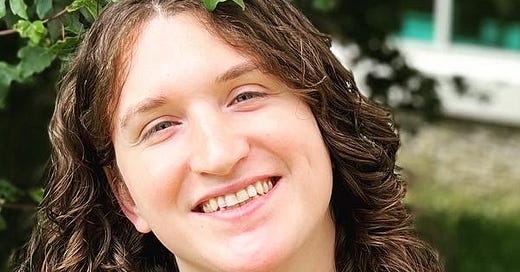Matilda Carter (University of Glasgow), "Minority Minds: Mental Disability and the Presumption of Value Neutrality"
2022, Journal of Applied Philosophy
As a result of extensive and effective campaigning across social and traditional media platforms, a marked shift took place in public discussion of mental health conditions in the 2010s. While the stigma attached to labels like depression and anxiety was not entirely eradicated, conditions like these were, to at least some extent, normalised –– an attitude shift exemplified by the slogan ‘it’s okay to not be okay.’
On the (relatively) new social media platform TikTok, a similar wave of social campaigning is emerging around neurodiversity. Users with autism and/or ADHD produce content that challenges stigma, encourages acceptance and pride in those that share the conditions, and (perhaps most controversially) suggests that viewers who recognise some of the traits and behaviours exhibited in themselves may be undiagnosed members of this group.
Just as in the 2010s movement against the stigma of mental health issues, there has been a significant backlash to this kind of social media content. It is common to come across posts from professionally diagnosed users claiming that the conditions have been caricatured, minimised, or made light of by other content creators. Likewise, just as some journalists decried the overapplication of labels like depression and anxiety, there has been a steady flow of columns warning against the pathologizing of ‘normal behaviour’ by labelling it as a symptom of Autism or ADHD.
The strikingly similar trajectories of these advocacy movements reflect a number of philosophical issues I explore in a recent paper in the Journal of Applied Philosophy. The prioritising of action against stigma, for example, raises questions about the extent to which the drawbacks of living with mental (as opposed to physical) disabilities result from social structures –– the extent to which, in other words, the social model of disability can be extended to disabilities of this kind. The backlash against expressions of disability pride, on the other hand, suggests a genuine conflict in first-hand testimony around disability and well-being that should not be overlooked when answering these questions.
In her 2016 monograph The Minority Body, Elizabeth Barnes develops a model of disability that is sensitive to self-evaluation. Rejecting the social model as definitionally inadequate, Barnes conceives of disability as a political label, applied to all those conditions that the disability rights movement is advocating on behalf of –– or to be more precise, should be advocating on behalf of, given the implicit rules they use for determining solidarity.
Armed with this definition, she then defends the view that disabilities are inherently neutral with respect to well-being, such that the goodness or badness of living with them is entirely dependent on their bearers’ evaluation of their compatibility with their wider projects and value-commitments. Accordingly, two persons could have the same disability in the same society but come to different conclusions about its effect on their well-being –– conclusions so distinct that, were a mechanism to remove the disability developed, one might reject the ‘cure’ while the other eagerly accepts it.
For the sake of argumentative clarity, Barnes restricts her analysis to physical disabilities. She does not, however, reject the possibility of extending it to cover all types of disabilities, including those that arise from mental health conditions and neurodiversity. My paper takes up this challenge, following her argument closely and making a few minor modifications to make it inclusive in this way. As, as far as I can tell, these amendments do not undermine the account, I conclude that we ought to think of all disabilities – whether their bearers have minority bodies, minority minds, or both – as neutral with respect to well-being.
In doing so, we can make sense of the trajectories of the movements against mental health and neurodiversity stigma, and better understand our societal duties in responding to them. For some people, conditions like ADHD and generalised anxiety disorder genuinely conflict with their values and projects. For others, they are a highly valued source of pride, such that the primary impairments to their well-being arise from a lack of social accommodation. Neither group is mistaken, and there is nothing to be gained in prioritising one kind of testimony over the other.
The upshot of my extension of Barnes’s arguments, rather, is that the just society is one in which mental disabilities are accommodated and freed from stigma, but also one in which persons have ready access to treatments that can modify and remove them. There is no essential conflict, in short, between mental disability liberation and the dissemination of medical advances.






Great contribution!! I asked elsewhere whether there are any objective standards one can apply to determining my competence, some set of standards everyone agrees to.
Well, no. Emphatically. No.
Each life is sui generis. Totally unique with problems, challenges, shaping forces, innate and external resources, all unique to it. No one can judge- other than oneself. So at a minimum, we need to liberate ourselves from standards imposed by others.